Are you struggling with relationships at work? Thinking about how to boost your reputation at work? This post presents ways to better your interpersonal skills and build more conscientious interactions at work.
KEY POINTS
1. If you struggle with relationships at work, it can help to define the value you add to each workplace interaction.
2. Speaking up at work builds trust and can boost your reputation, rather than damage it.
3. Extending vulnerability at work, without undermining your credibility, means taking your commitments seriously.
Often in my seminars, I use the example of a small software company I’ve worked with, which gained some notoriety in the late 1990s for its “no-jerks” policy. Meant to capture some of the intangibles of interpersonal relationships, the policy prohibited employees from “acting like a jerk.”
What usually ensues in my seminars is a lively discussion about what it means to act like a jerk at work. Most seminar participants agree that it’s pretty easy to know when somebody else is acting like a jerk—we know it when we see it. The real challenge is figuring out when you are the one acting like a jerk.
How do you know? You know you are acting like a jerk at work if you:
- Approach relationships from the vantage point of what you want or need from others, rather than what you have to offer the other person.
- Blame others and make excuses when things go wrong, rather than focus on the role you played in creating the problem and on what you can do to contribute to the solution.
- Take yourself seriously, but don’t always take your obligations seriously.
- Tease and make fun of others or call them names.
- Interrupt when others are speaking or don’t pay close attention when others are speaking.
- Make negative personal observations about individuals.
- Hold strong opinions about the work product of another individual, but never articulate your thoughts in a constructive manner.
- Focus on the negative aspects of situations without volunteering to help make things better.
- Denying, stealing, or begrudging credit for the success of others.
- Lose your temper, raise your voice, even if you are only “talking to yourself.”
If you find yourself doing any of these things, well, now you know: You might be acting like a jerk at work. If you act like a jerk at work, it’s going to hold you back.
So, if that’s you, knock it off.
People with good interpersonal skills, who are conscientious in their interactions with others, are much more successful. How do you develop more conscientious interactions at work? There are nine ways.
1. Approach Every Relationship By Staying Focused On What You Have To Offer The Other Person
First, define the value you want to add—now or within a reasonable period of time—in this relationship. Until you define the value you are willing and able to add in any situation, it will be impossible to sell that value to anyone else.
Read How To Unleash Your Inner Yoda: The 8 Step Plan To Lead Your Team Through Uncertainty
2. Be A Model Of Trust
Take personal responsibility for everything you say and do, hold yourself accountable, and never make excuses when you make a mistake. If you do make a mistake, simply apologize and make every effort to fix it.
3. Remove Your Ego

Don’t take yourself too seriously, but always take your commitments and responsibilities seriously. Extend personal vulnerability, but never undermine your own credibility.
Read 12 Things First-Time Leaders Need To Succeed
4. Listen Carefully
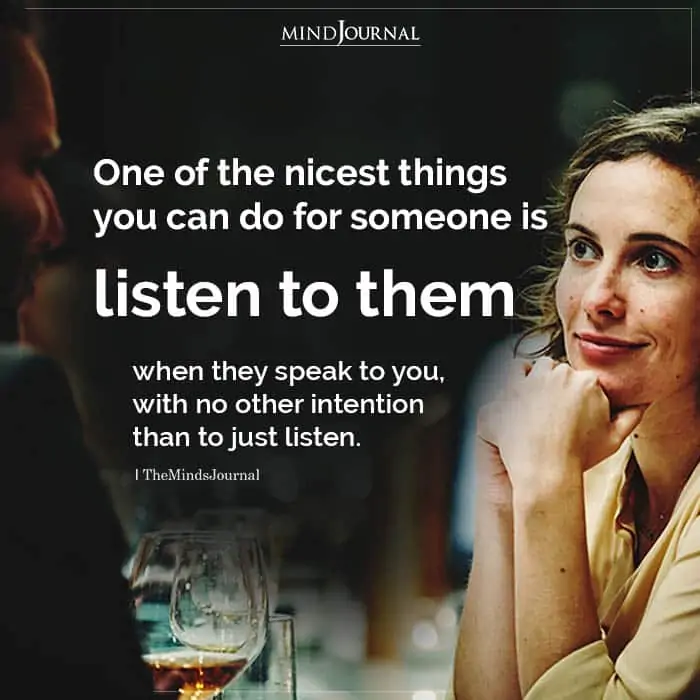
Never interrupt or let your mind wander when others are speaking. Stay focused on what the other person is saying. When it’s your turn, ask open-ended questions first and respond directly only after you are confident you understand what the other person saying or his or her point of view.
5. Empathize
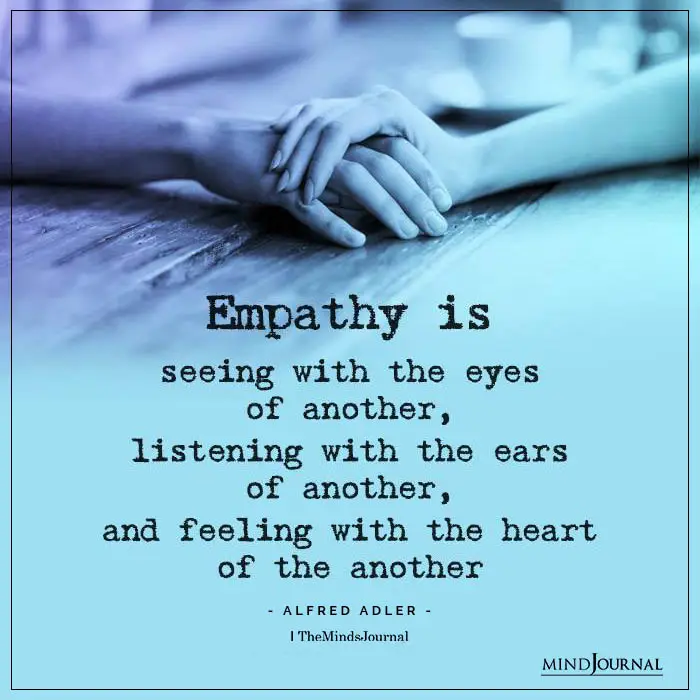
Always try to imagine yourself in the other person’s position. Ask yourself what thoughts and feelings you might have if you were in their place. Then behave in a way and say the kinds of things that you would appreciate hearing under the same circumstances.
6. Exhibit Respect And Kindness
Take courtesy the extra mile. If you think the other person is pressed for time, be brief. If you think something might be wrong, ask if there is anything you can do to help (but don’t be pushy). Never share observations that might be insulting and never hesitate to share a compliment.
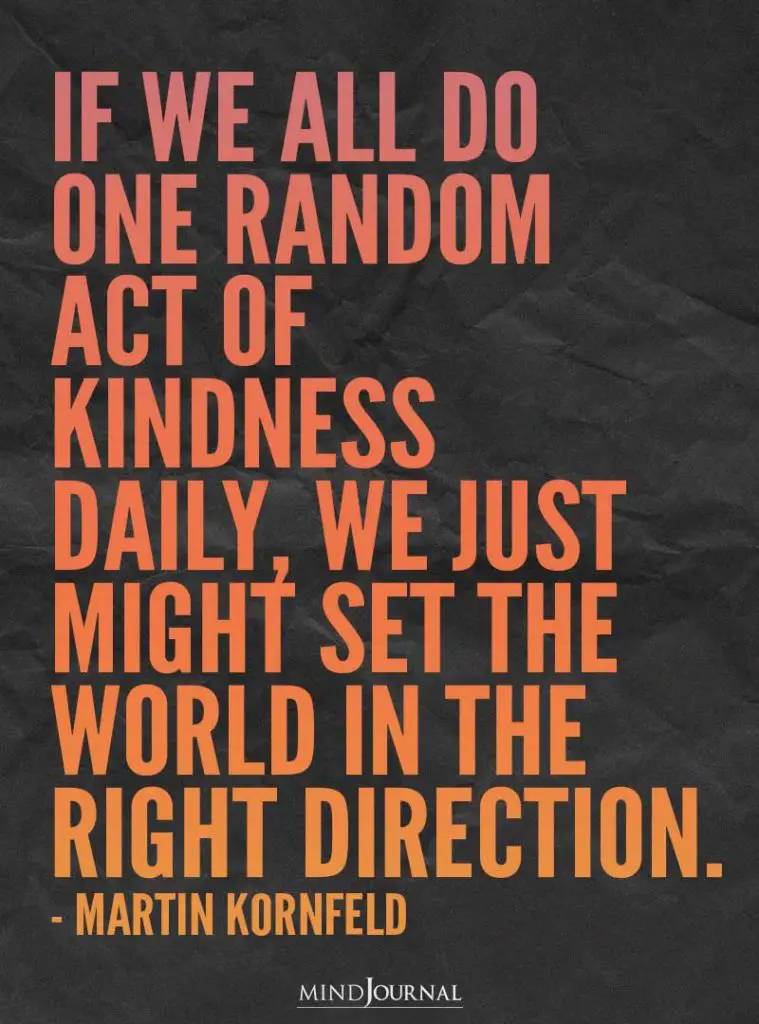
7. Speak Up And Make Yourself Understood
If you don’t say what’s on your mind, you’ll have no chance of connecting with people, getting them to share your interests, influencing their thoughts, or persuading them to do things your way. Of course, sometimes it helps to take a quiet moment and clarify, for yourself, what really is on your mind. If it’s something that ought to be shared, take an extra moment to think about the most effective words and actions to get your message across.
Read Six Tips for Speaking Up Against Bad Behavior
8. Be A Motivator
Visualize positive results. Be enthusiastic and share your positive vision. Never speak of a problem unless you have thought of at least one potential solution.
9. Celebrate The Success Of Others At Workplace
Always give people credit for their achievements, no matter how small. And go out of your way to catch people doing things right.
Are you ready to build more conscientious interactions at work?
Please share this article with anyone who you may think will find it valuable and helpful.
Written by: Bruce Tulgan Originally appeared on: Psychology Today Republished with permission
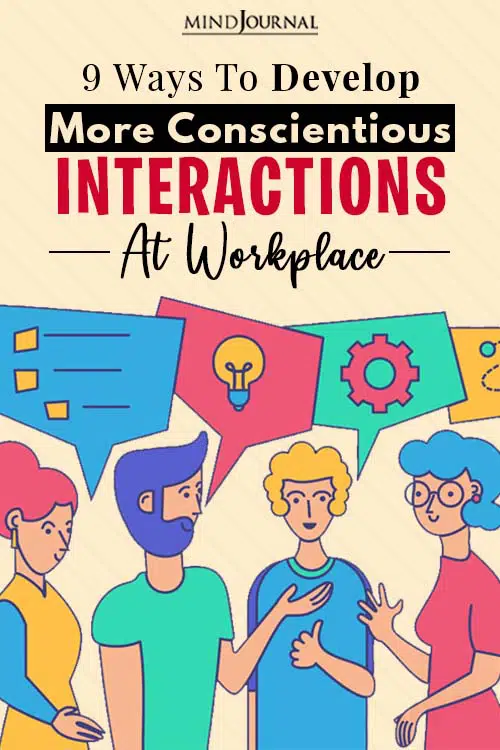
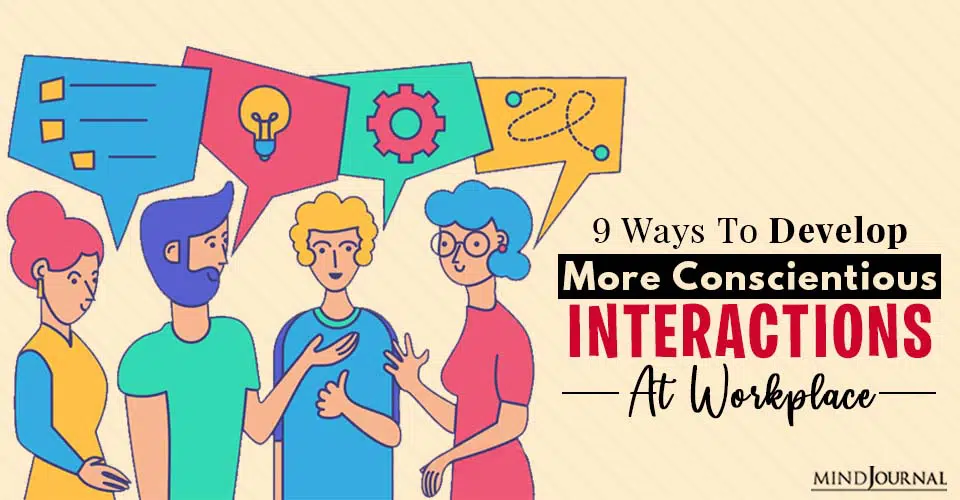







Leave a Reply
You must be logged in to post a comment.